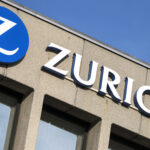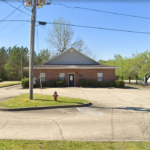WorldCom’s recent revelations of accounting irregularities that resulted in the company overstating pretax profits by nearly $4 billion in 2001 and early 2002 are yet another blow to a directors and officers (D&O) liability insurance market already suffering from scandals at Enron, Tyco, ImClone and Andersen, the crash of the dotcoms, and the events of Sept. 11, 2001.
According to Standard & Poor’s, D&O payments that may be triggered by the WorldCom debacle won’t be “a significant concern for any single insurer,” but the ratings agency stated that WorldCom’s negligence is part of a “wider problem” and represents an “all too familiar pattern of systemic exposure.”
The telecommunications giant is facing civil fraud charges and many analysts think the company will declare bankruptcy as a result of the disclosure of inflated earnings. WorldCom’s CFO and its controller resigned after the company reported on June 26 that it was taking $3.8 billion off its books. It’s stock, which once traded as high as $64 per share had dropped to below $0.06 per share on July 1.
The Wall Street Journal reported that insurers, such as Swiss Re, CNA Financial, AIG, XL Capital and Hartford Financial Services, will likely deny claims by WorldCom on its D&O liability policies, due to the exclusions those policies have for criminal wrongdoing or fraudulent acts. WorldCom’s claims are estimated to be as high as $100 million.
A.M. Best Company estimated that WorldCom’s “potentially fraudulent misreporting of financial information” could result in a quadrupling of D&O costs. Large customers with capitalization of over $5 billion are especially at risk, and premiums are likely to run 10 to 15 percent, and higher, of the coverage amount.
WorldCom’s woes continued to grow after it filed an additional report with the Securities and Exchange Commission that revealed the company may have overstated profits in 1999 and 2000 as well, to the tune of more than $1 billion. The company also revealed that it is in default on loans borrowed from a group of banks, including Citigroup and Deutsche Bank, according to WSJ.
Associated Press reports that SEC chairman, Harvey Pitt, bluntly criticized WorldCom’s newest statement to the commission, stating that it “demonstrates a lack of commitment to full disclosure to investors and less than full cooperation with the SEC.”
Pitt said the SEC’s civil investigation of WorldCom is ongoing, adding, “Criminal charges may be too good for the people who brought about this mess.”
The D&O market was already in trouble—it was one of the worst performing lines of insurance 2000 and 2001, according to the Professional Liability and Underwriting Society (PLUS). In a symposium held by PLUS in New York in February 2002, panelists said higher rates, co-insurance, higher retentions and improved management would be needed in order for the market to recover. Stricter underwriting—unbundling risks that had previously been grouped together under a single cover, and vigilant scrutiny of prospectuses and other financial reports—is an absolute necessity.
According to A.M. Best, carriers are not writing up to their capacity in the D&O market and are offering lower limits. Where previously only a couple of carriers were used for coverage, five or six may be needed in order to get the same amount of coverage, and those five or six sources may be difficult to find. Carriers are being far more choosy than they have been in the past as to which companies they’ll provide coverage for.
So far insurers are by and large reporting that the hits they’ll take to their investment portfolios as a result of the WorldCom scandal will be less than devastating. S&P has has estimated that U.S. insurers held $7.3 billion in WorldCom investments at the end of 2001. In a statement, S&P noted that “even though the demise of WorldCom Inc. presents no immediate ratings consequence, it is symptomatic of an ongoing trend that spells downgrades for insurers, not just from investments gone sour but from reimbursements of top company executives facing liability payments.”
In the wake of WorldCom’s revelations, President Bush strongly criticized irresponsible corporate behavior, calling “for stiff new penalties for corporate criminals and a crackdown on boardroom scandals,” according to AP reports.
Congress, too, is getting into the action with hearings on WorldCom’s financial collapse. However, top WorldCom officials, including ex-CEO Bernard Ebbers and former CFO Scott Sullivan, have so far refused to testify, invoking their Fifth Amendment constitutional rights against self-incrimination. USA Today reported that David Myers the former WorldCom controller who resigned as a result of the scandal, didn’t show up for the hearing. Federal marshals who were trying to serve him with a subpoena allegedly could not locate him to complete their task.
No matter how the drama unfolds, however, the D&O market is sure to come up bruised and battered, but hopefully a little smarter for the experience. For its part, S&P plans to continue monitoring “the effects on insurers’ investment portfolios and exposures arising from professional-liability coverage.” However, it expects some insurance industry downgrades “before the gangrenous spread of accounting mischief has run its course.”
Was this article valuable?
Here are more articles you may enjoy.


 Zurich Reveals Beazley Stake After UK Insurer Spurns Bid
Zurich Reveals Beazley Stake After UK Insurer Spurns Bid  Longtime Alabama Dentist Charged With Insurance Fraud in 2025 Office Explosion
Longtime Alabama Dentist Charged With Insurance Fraud in 2025 Office Explosion  Chubb CEO Greenberg on Personal Insurance Affordability and Data Centers
Chubb CEO Greenberg on Personal Insurance Affordability and Data Centers  Chubb Posts Record Q4 and Full Year P/C Underwriting Income, Combined Ratio
Chubb Posts Record Q4 and Full Year P/C Underwriting Income, Combined Ratio 


